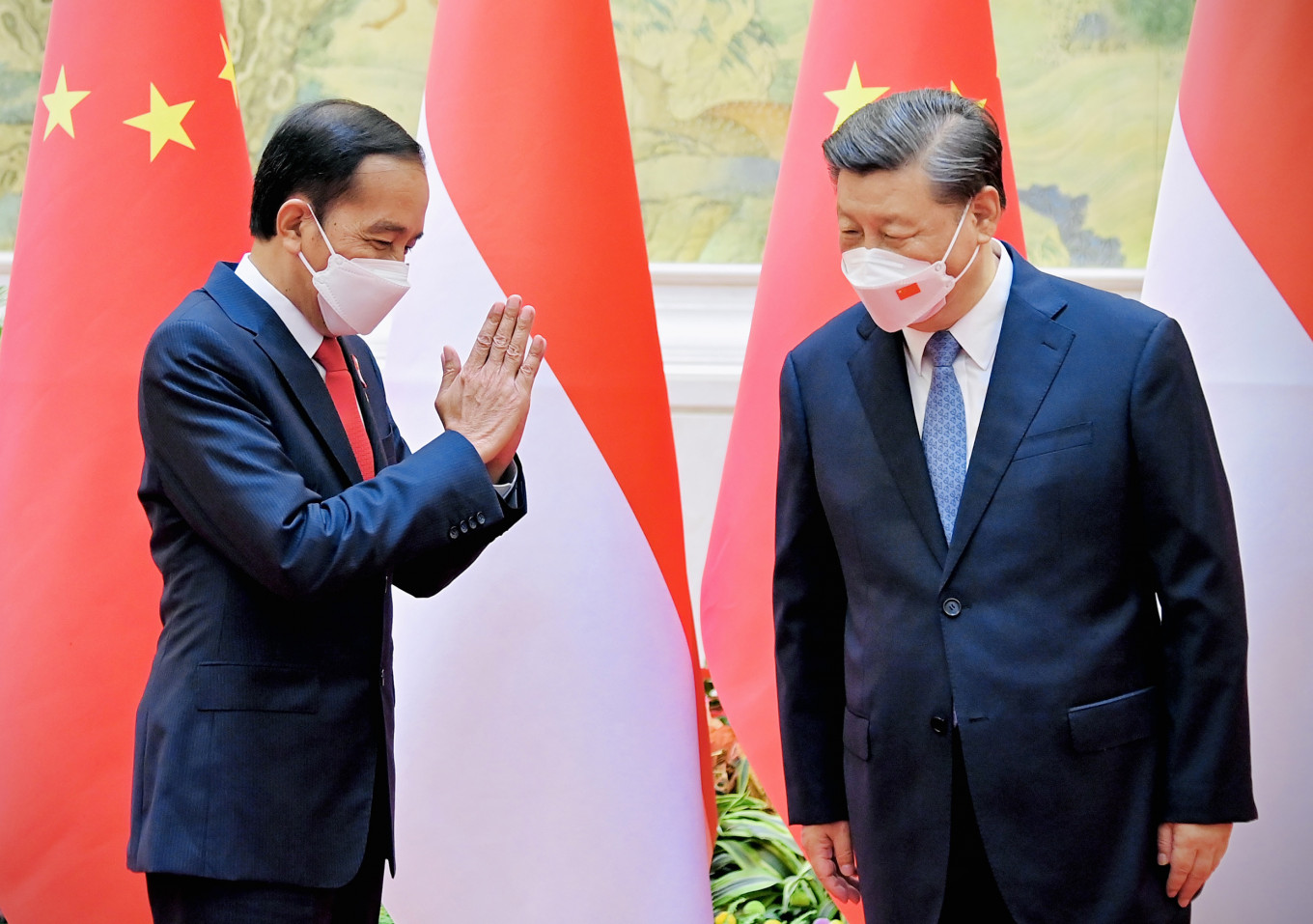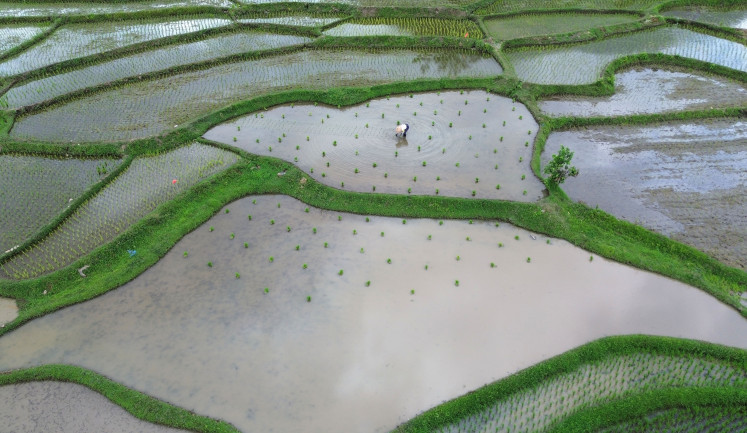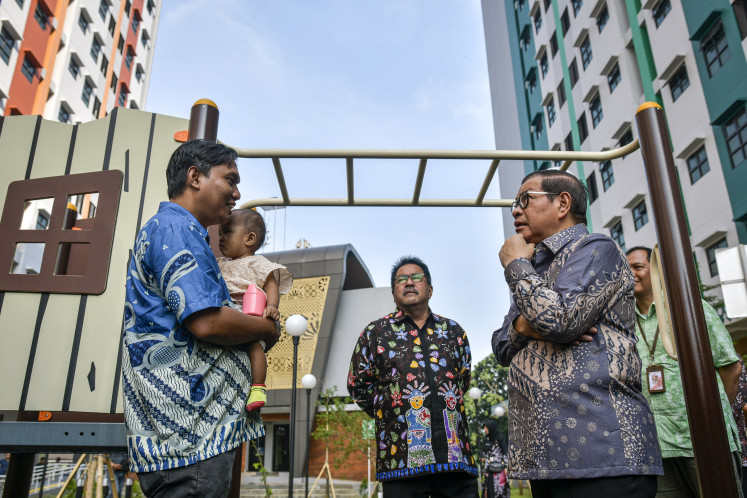Popular Reads
Top Results
Can't find what you're looking for?
View all search resultsPopular Reads
Top Results
Can't find what you're looking for?
View all search resultsChina, Indonesia set to make greater contributions to region and the world
Thanks to the Belt and Road Initiative, the Regional Comprehensive Economic Partnership (RCEP) and other practical measures, Indonesia is seeing a rapid increase in China-invested projects.
Change text size
Gift Premium Articles
to Anyone
M
id-September in Jakarta comes with muggy days, and a sense of prosperity, too. Busy airports, heavy traffic flows, the hustle and bustle of well-decorated malls and buzzing farmers’ markets. They all mirror the vitality of the Indonesian capital.
According to official statistics, Indonesia’s gross domestic product grew 5.44 percent from a year ago in the second quarter of this year, the fastest quarterly increase in recent years. A report issued by the Asian Development Bank on Sept. 21 said that the country's economic growth may hit 5.4 percent this year and 5 percent in 2023. It indicates that Indonesia's economy is on a path to full recovery.
Indonesian media has said that apart from the robust export performance, investment has also contributed to Indonesia's economic growth.
China is one of the biggest sources of investment in the Southeast Asian country.
A report by ASEAN Briefing noted that China had maintained its place as Indonesia's biggest trading partner for nine years, and the total trade between the two countries hit US$124.3 billion last year. Investment from the Chinese mainland in Indonesia reached $3.2 billion, which makes it the third largest investor in Indonesia, only after Singapore and China's Hong Kong Special Administrative Region.
The Jakarta-Bandung high-speed railway is a signature project of China-Indonesia cooperation. "Over 90 percent of the project's civil work has been completed, and we're confident that the railway will be put into use next year as scheduled," said Xin Xuezhong from China Railway.
The railway, with a speed of 350 kilometers per hour, is expected to shorten the journey between the two Indonesian cities to around 40 minutes from over three hours.
Thanks to the Belt and Road Initiative, the Regional Comprehensive Economic Partnership (RCEP) and other practical measures, Indonesia is seeing a rapid increase in China-invested projects.
According to Zhang Chaoyang, chairman of the China Chamber of Commerce in Indonesia and country manager of the Bank of China Jakarta branch, the chamber has over 600 members, most of which are engaged in industrial investment.
Interviewees from Indonesia's legislative branch, the People's Consultative Assembly (MPR), Bina Nusantara University Kijang Campus, the Tourism Confucius Institute of Udayana University and the Bali branch of the Indonesia-China Friendship Association, all recognized the development of Indonesia-China relations and said they were looking forward to the two countries further enhancing cooperation.
"Indonesia-China relations have never been better," said deputy MPR speaker Lestari Moerdijat.
As the two countries further deepen their economic and trade cooperation, they will see a higher level of economic complementarity.
China's economic development over recent years, especially the rapid growth in the past decade, has made the country competitive in multiple fields, such as electric vehicle (EV) manufacturing, high-speed railway construction, mobile payments and energy facility construction.
A batch of Chinese enterprises engaged in the above industries has started business in Indonesia, benefiting local communities. For instance, a power plant constructed by China’s Huadian Engineering Co., Ltd. in Bali, Indonesia, has provided more than 40 percent of electricity consumed by the 4 million residents on the island since it went into operation in September 2015.
"The power plant will supply electricity for the G20 summit to be held in Bali this November," said Huadian Bali General Energy director Chen Xiaoli, who joined the construction of the power plant.
Indonesia's exports are also in line with the demand of the Chinese market, such as oil products, minerals, palm oil and related products, rubber, plastic and wood.
Chinese President Xi Jinping has reiterated that China will only open its door wider to the world. This means more development opportunities for other developing countries, including Indonesia.
Over the past 10 years, China has worked actively to change its opening-up pattern from one based on the flow of products and factors to one based on institutions and rules, in an attempt to build a comprehensive and high-level open economy.
Since 2013, China has launched 21 pilot free trade zones (FTZs). They have seen their successful practice in 278 cases of innovation in institutional reform promoted at the national level. The number of items on the national and FTZ negative lists has been downsized to 31 and 27, respectively.
In 2020, China ranked 31st among 190 economies in the World Bank's ease of doing business index, rising from 96th in 2013 and becoming one of the fastest-growing economies in the world.
Indonesia-China cooperation is mutually beneficial, not only serving the two nations well but also contributing significantly to peace and development in the region and beyond, said Indonesian President Joko “Jokowi” Widodo in Beijing this July.
President Jokowi, who has paid five visits to China, said Indonesia would work with China to keep deepening its comprehensive strategic partnership and make still greater contributions to regional peace and global development.
***
The writer is Asia-Pacific bureau chief of People’s Daily.











